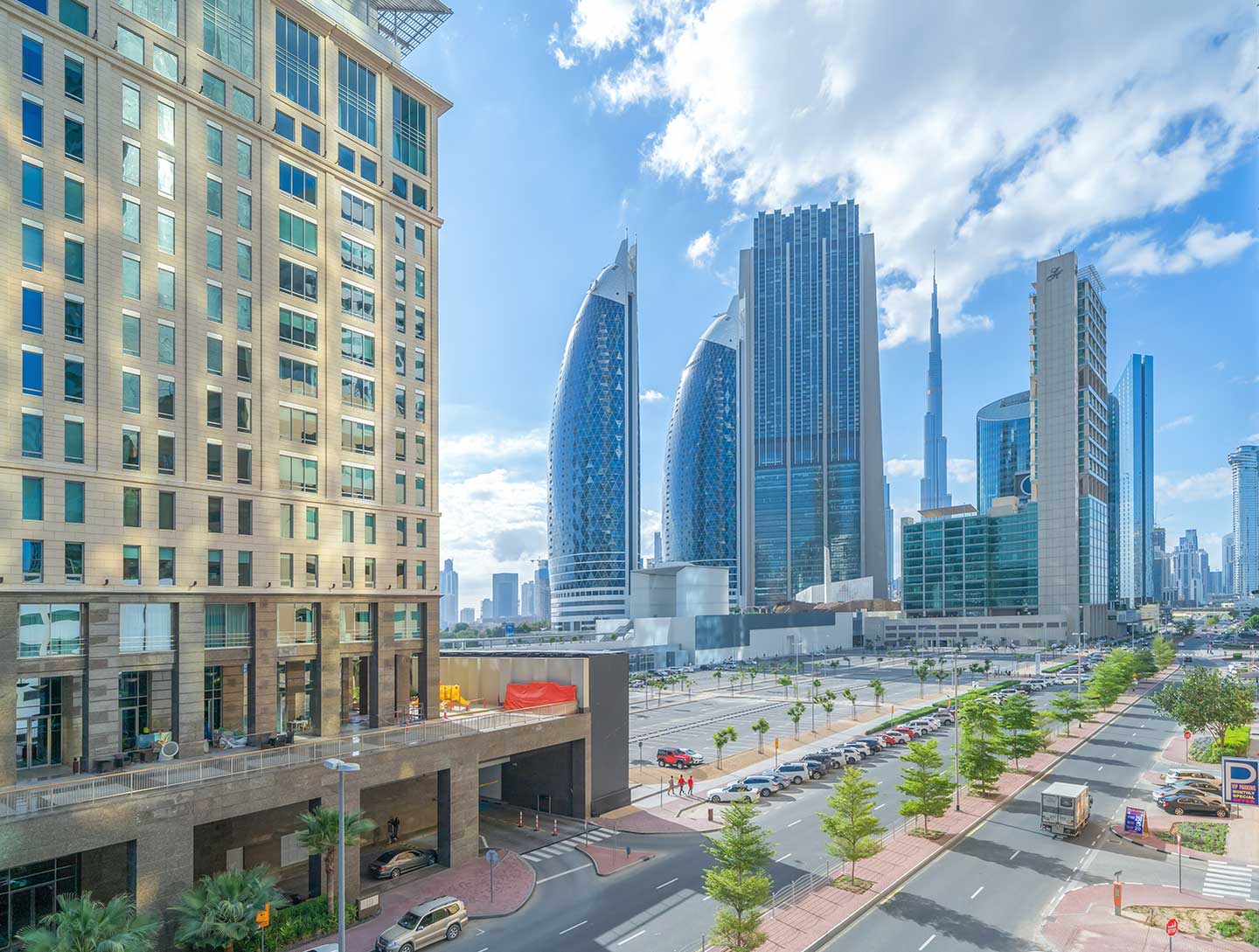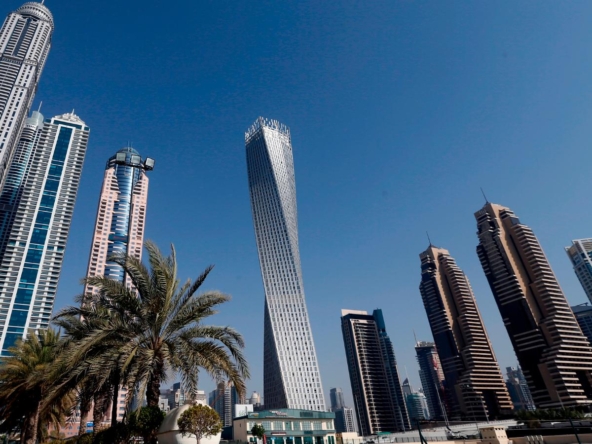The real estate market in the UAE, particularly in Dubai and Abu Dhabi, continues to demonstrate robust growth in 2024. This growth is being driven by a variety of factors, including government reforms, increased foreign investment, and a rising demand for both luxury and affordable housing.
Dubai: A Booming Property Market
Dubai’s real estate market is experiencing an unprecedented surge in 2024. The city is breaking records in terms of both transaction volume and value. According to Property Finder, Dubai recorded 43,522 sales transactions in Q2 2024, a 45% increase compared to the same period in 2023. The value of these transactions reached AED 124.4 billion, a 37% year-on-year rise, marking the highest transaction value ever recorded for a single quarter (Construction Week Online) (Property Finder).
Luxury Market Growth
The luxury segment in Dubai is particularly flourishing, driven by demand from high-net-worth individuals (HNWIs) who are attracted by the city’s global appeal and lifestyle offerings. Villa prices, for instance, have surged, with prime locations like Palm Jumeirah, Dubai Hills Estate, and Emirates Hills witnessing significant capital appreciation. Villa prices in Palm Jumeirah increased by 40.1% year-on-year as of April 2024, continuing a trend of strong demand that began post-pandemic(Construction Week Online).
Off-Plan and Ready Properties
Dubai’s real estate market in 2024 is also characterized by a strong performance in the off-plan sector, which accounted for 60.4% of total sales transactions. Off-plan transactions grew by 80% year-on-year in Q2 2024, driven by new developments and investor confidence in long-term returns. Conversely, the ready property market, while smaller in volume compared to off-plan sales, still recorded a notable 11.6% increase in transactions(Property Finder).
Rental Market
The rental market in Dubai is similarly thriving, with a 19.7% increase in total rental contracts during Q2 2024. There was a significant rise in new rental contracts, which represented 56% of the total, marking a 25.5% increase from the same quarter in 2023. Areas like Business Bay, Al Barsha, and Al Khabeesi continue to be popular among renters(Property Finder).
Abu Dhabi: Growth in Both Luxury and Affordable Segments
Abu Dhabi’s real estate market has seen strong growth in 2024, supported by significant government reforms and an influx of foreign direct investment. According to Bayut, both the sales and rental sectors have performed well, with notable increases in property prices across both affordable and luxury segments(Gulf Business).
Luxury Real Estate
The demand for luxury properties in Abu Dhabi is being driven by international investors, particularly in high-end areas like Yas Island and Saadiyat Island. For instance, luxury villas in Yas Island saw a 10.3% increase in prices during H1 2024. Similarly, Saadiyat Island’s luxury apartments experienced a 6% rise. These areas are particularly attractive due to their proximity to cultural landmarks and lifestyle amenities(Gulf Business).
Affordable Housing
While the luxury segment is booming, Abu Dhabi also offers strong returns for investors in affordable housing. Areas like Al Reef and Al Ghadeer have become hubs for budget-friendly apartments and villas. Affordable apartment prices in Al Ghadeer rose by 9.5% in H1 2024, with these areas offering some of the highest returns on investment (ROI) in the market. Al Ghadeer, for instance, provided an ROI of 8.52% for affordable apartments(Gulf Business).
Rental Market
Abu Dhabi’s rental market has also been buoyant in 2024, with demand increasing for both affordable and luxury rentals. Khalifa City and Mohammed Bin Zayed City are popular areas for affordable villa rentals, while Al Reem Island and Yas Island lead the luxury villa rental market. Rental rates for luxury apartments in areas like Saadiyat Island have increased by up to 21%, reflecting the growing demand for high-end living options(Gulf Business).
Key Drivers of Growth
Several factors are driving the growth of the real estate markets in both Dubai and Abu Dhabi:
- Government Initiatives: Both cities have benefited from progressive government policies aimed at attracting foreign investment. The UAE’s long-term visas, including the Golden Visa program, have made it easier for investors and expatriates to settle in the country, thus boosting demand for property.
- Investor Confidence: Both local and international investors view the UAE as a stable and profitable market. In Dubai, the off-plan market is thriving, while Abu Dhabi’s diversified property offerings, including affordable housing and luxury developments, are drawing interest from a wide range of buyers.
- Economic Diversification: The UAE’s efforts to diversify its economy beyond oil have led to significant infrastructure and real estate developments. The rising population, driven by the influx of expatriates, continues to fuel demand for housing across various segments.
- High Returns on Investment: The UAE continues to offer some of the highest property yields globally. In Abu Dhabi, properties in Al Reem Island offer rental yields of nearly 7%, while Dubai’s ready and off-plan properties also provide competitive ROI, especially in areas like Palm Jumeirah and Dubai Hills(Gulf Business)(Construction Week Online).
Market Outlook
Looking ahead, both Dubai and Abu Dhabi are expected to maintain their upward trajectory in the real estate sector throughout 2024. The influx of international buyers, coupled with a growing number of off-plan developments, points to continued demand in both luxury and affordable housing segments.

In Dubai, the strong performance of the off-plan market is likely to continue, driven by new project launches and sustained investor interest. Villa prices are expected to remain high, particularly in sought-after locations, though apartment prices may see more moderate growth.
In Abu Dhabi, the combination of high-quality off-plan developments and government transparency will likely drive further growth. Luxury and affordable properties will both remain in high demand, as the city cements its position as a global investment destination.
In conclusion, the real estate markets in Dubai and Abu Dhabi are on track to surpass previous records in 2024. The combination of government initiatives, investor confidence, and high returns on investment ensures that these cities will continue to be key players in the global real estate landscape.





